I’ve always been an emotional woman. I cry during sad movies, break down when a child or elder is having a hard time, and of course, grieve deeply when people I love die prematurely.
In late February, a few weeks before my 52nd birthday, I found myself feeling deep sadness. After the death of my mother-in-law and a close friend came the termination of a seven-year relationship. With the additional stress of a dear friend suffering from bone marrow cancer, I decided to go for help.
As a teacher, my school district pays high premiums to provide me with one of the top HMO plans from Kaiser Permanente, a large integrated managed care consortium in California. Although I’d rather go to one of my alternative healers than deal with Western doctors, I made an appointment with my Kaiser-designated doctor to discuss my depression. Although I had only met her once, I knew that if I needed to access therapy, acupuncture, or any other care, I would need to start with a primary care physician.
My appointment began with a short questionnaire, which I noticed had the pharmaceutical company Merck listed on the bottom. I was asked to rate my sadness, anxiety, feelings of depression and suicidal thoughts. I listed all my symptoms as “mild.” Some symptoms, like skipping meals, didn’t even apply to me.
My doctor, whom I will call Dr. Kashi Chimera, was young and slick, dressed in a checkered shirt and jeans. She began by interviewing me about why I was there. She asked me how long it had been since I’d experienced these deaths. She typed everything I said into a laptop as I responded “Since the end of last summer. But it’s taken me a long time to get through it. I’m grieving.”
At this point, just a few minutes into my appointment, Dr. Chimera came close to me, closer than felt comfortable, and peered into my face as she put her hands on my knees. She said, “You do not have to feel these sad feelings, Amity.”
I tried to back away from her body invading my space. “Of course I do, doctor. It’s natural to feel your feelings.”
Hasn’t she heard of the stages of grief? I thought.
I was vacillating between sadness and disbelief that people could just die so suddenly. I talked a little about how I felt it is natural to enter deep emotional states, and to learn from them. After a few minutes, it was clear she wasn’t listening.
She looked at me with pity, and shook her head adamantly. “From up in Heaven, or where ever they are – they would not want to know that you are suffering.”
Dr. Chimera turned and started scribbling on a pad. “I’m prescribing Prozac for you,” she said. Before I took the prescription and stuffed in my purse, she said that I might not feel better right away, and that I might even experience unpleasant side effects (although she did not mention what these might be).
She followed with this advice: “Don’t stop taking them,” even if you don’t feel better, because “the brain chemistry needs time to change.” After the first few weeks, she said, I would start feeling less depressed.
Alarm bells went off in my mind. I suspected that Dr. Chimera was reciting standard lines that she had memorized from a script. Perhaps Kaiser Permanente, had determined that prescriptions for generic Prozac were more cost effective than therapists. Perhaps my doctor’s job was to determine which pharmaceuticals could be prescribed in the shortest time possible. My whole appointment lasted less than ten minutes. As I left, she added, “It’s a controlled substance. When you run out in nine weeks, you’ll have to call me to get your refill.”
I walked out of the office thinking, If I agree to this, will she become like my drug dealer, the middle-lady between me and the pharmaceutical company that makes generic Prozac? I didn’t stop to pick up my prescription at the pharmacy. Instead, encouraged by a friend to do some research, I began learning more about Prozac.
Prozac is the brand name for a drug called fluoxide, one of the many SSRI (selective serotonin re-uptake inhibitors), developed by the Eli Lilly pharmaceutical company. Approved by the FDA in 1987 for the treatment of major depressive disorders, it has become a ubiquitous drug in our country.
In 2010, the last year for which statistics are available, 24.4 million Prozac prescriptions were filled in the United States. Abilify, a popular anti-psychotic, recently surpassed even Prozac to became the number-one seller among all prescription drugs in the U.S. Among adult women in the U.S., one in four now take a psychiatric medication, the highest percentage in history.
It’s also true that people with psychiatric disorders do seem to benefit from anti-depressant or anti-psychotic drugs, because their brains have chemical imbalances.
Yet anti-depressants like Prozac, when taken by people who don’t need them, can create the very effects they purport to cure. Some become agitated and irritable. Many lose their sex drive, and others want to kill themselves.
I was shocked to learn that “suicidal ideation” is a reported side effect, especially in the first stages of taking the drug.
Not all psychiatrists believe it’s wise to medicate so readily. Women receive a diagnosis of depression or anxiety disorder nearly twice as often as men do, according to psychopharmacologist and psychiatrist Dr. Julie Holland, author of the best-selling book, “Moody Bitches: The Truth About the Drugs You’re Taking, The Sleep You’re Missing, The Sex You’re Not Having, and What’s Really Making You Crazy.”
In a recent New York Times Op-Ed piece, entitled “Medicating Women’s Feelings,” Holland called the over-prescribing of psychiatric drugs to women “insane.” She wrote, “When we are over-medicated, our emotions become synthetic. What we need is more empathy, compassion, receptivity, emotionality and vulnerability, not less . . . We need to stop labeling our sadness and anxiety as uncomfortable symptoms, and to appreciate them as a healthy, adaptive part of our biology.”
Holland warns that drugs that enhance serotonin transmission, tend to “lengthen [your] short fuse and quell your fears,” but also “blunt negative feelings more than they boost positive ones.” In other words, by replacing emotions with chemicals, women simply feel less of these emotions: empathy, sadness, creativity, ecstasy, anger, worry, and mourning.
Instead of drugs, Holland concludes, most of us really need more sunshine, sleep, nutrients, movement, and eye contact, all “crucial to us as social primates.”
My research also brought me to the website of Dr. David Healy, a well-known British psychiatrist and expert in the field of psychopharmacology. He wrote the book Pharmageddon, which is highly critical of American pharmaceutical companies and the lax FDA approval process.
More than a few who start on Prozac become highly agitated, and, in some cases, “have suicidal thoughts,” or even “strange, out-of character thoughts,” Healey told the web magazine Counter-Punch. “You could think of being less depressed as a side effect.”
On the excellent health blog Women to Women, OBGYN RN Marcelle Pick wrote that anti-depressant drugs are being over-prescribed, and that they “certainly aren’t free of side effects.” Moreover, she warns, “The depressing truth about anti-depressants . . . is that they’re just not very effective, for a lot of people.”
Especially, it turns out, for low-level depression like the kind I was experiencing. A 2010 meta-study, Pick noted, “showed few to no benefits for mild- to moderately-depressed people.” She points out that the pharmaceutical companies have ruthlessly promoted these drugs.
When Dr. Chimera mentioned brain chemistry changes, I felt wary. As I’ve been going through menopause, my brain’s chemistry is naturally changing: I feared I could interfere with this process, and my long-term health, by using drugs to alleviate a temporary condition.
According to Pick, the alteration of body chemistry creates a letdown in serotonin levels that can be rough when you try to quit. “Anti-depressants can alter the biochemistry of the brain, and can be very difficult to discontinue,” she writes. “Some patients reported weird brain symptoms like tics, or zapping sensations, every time they tried tapering off the drugs.”
This sealed it for me. I wasn’t going to join the legions of women who choose to level out their feelings with a brain-altering pill. Alternative doctors point to cognitive therapy, light therapy (the beach works wonders), herbs such as St. John’s wort and valerian,, the South Pacific root kava-kava, and vitamins such as the B family, and D3. I’m also a huge proponent of organic whole foods, locally sourced, to keep myself in balance.
What most women need, wrote Pick, is “deep reflection with supportive guidance.”
At the end of the day, she said, “the tincture of time may be the kindest and gentlest healer of all.”
Equally important is human connectivity. I have become increasingly grateful for my supportive family members, friends, and loving partner, along with a seasoned therapist and several alternative health practitioners I couldn’t do without. With this network of care, I feel I have the courage to navigate these changes in my life.
The Prozac prescription gathers dust in a medicine cabinet. Instead of popping pills, I took my time, and treated my grief with compassion. I’ve been feeling better as the spring beautiful weather returns to the North Bay, and my sadness has lifted itself naturally.
Life moves on, in all its beauty, with the full range of emotions I am here to experience.
Amity Hotchkiss, BS/BA/MA, is a Sonoma County-based activist, educator, and writer. She has been a high school teacher of language arts and journalism in Marin County for almost 20 years. Amity was formerly a writer for The Pacific Sun and Sunset Magazine. She currently writes stories about women, health, personal growth, travel, and spirituality.


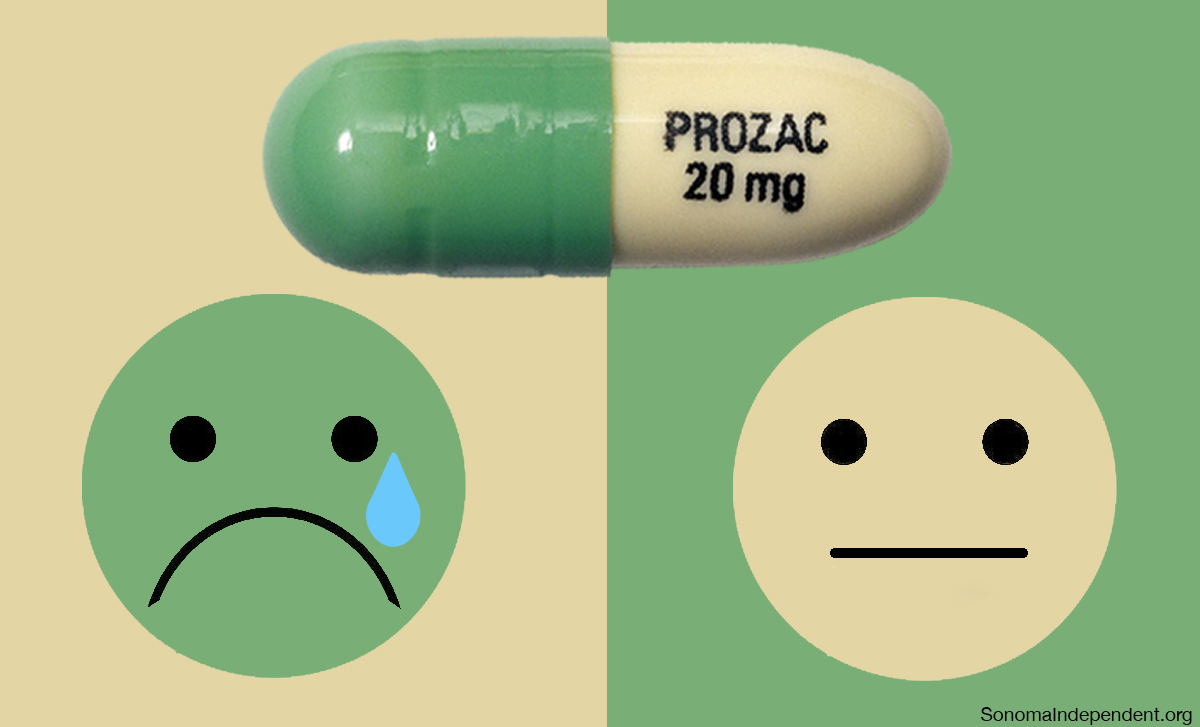
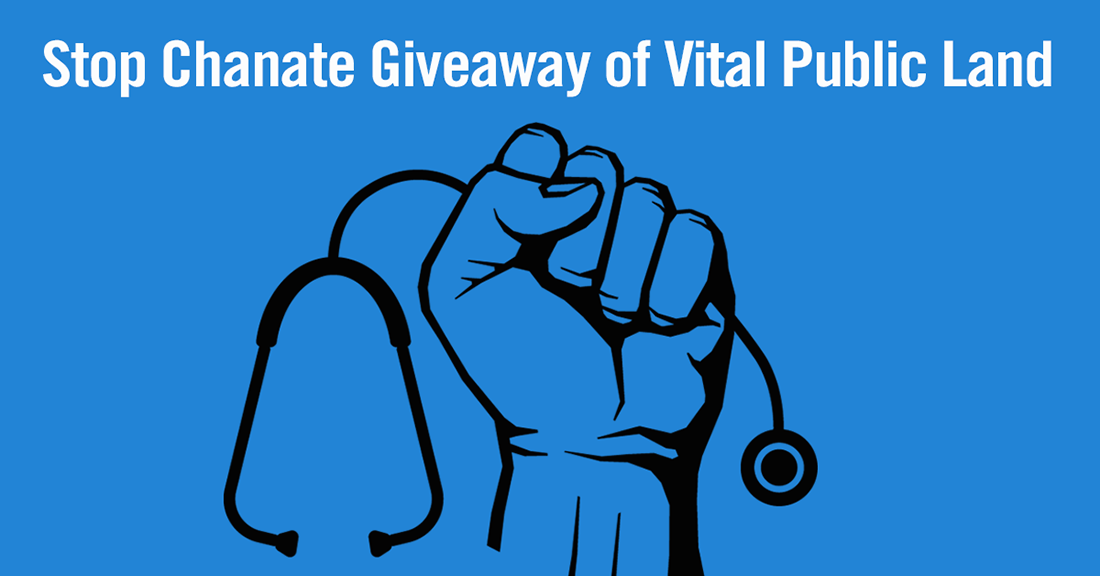

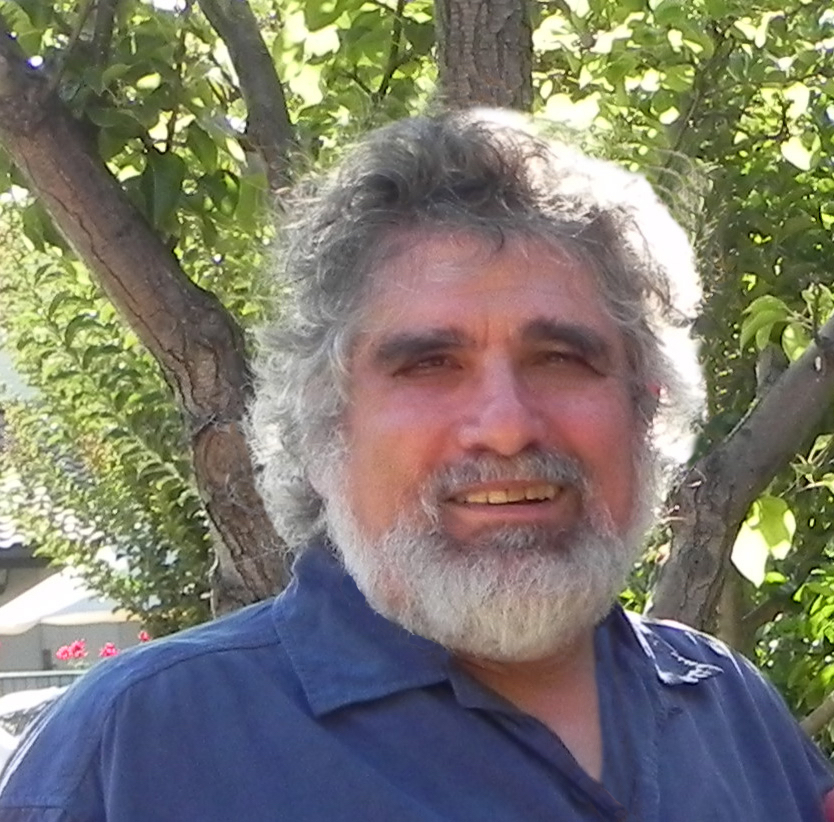




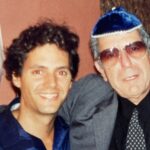









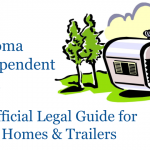






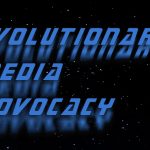







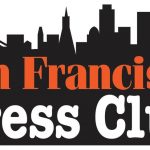
Many thanks to Amity Hotchkiss for this excellent and beautifully written article, which brings up many important issues. One is the commodification of health care. Another related one is the fox-guarding-the-henhouse arrangement in our regulatory agencies. A third, and the one most interesting to me personally, are the potentially fatal side-effects of SSRI drugs.
I’ve never personally taken anti-depressants, but I’ve been interested in the effects of these drugs since 1986, when my then-husband David and I visited his uncle Peter at his farm in northern Scotland. While there we met Peter’s long-time farm manager George, who told us what a fine man Peter was. His affection and respect for his employer was obvious.
A couple of weeks after returning to California David got a call. I could tell from the expression on his face as he hung up the phone that something terrible had happened. “Peter’s been murdered,” he said. George had shot him while he slept, and then had turned the gun on himself. The tragedy left the whole family stunned. How could this have happened? Turned out George had recently started taking anti-depressant medication. As David Healy, a British psychiatrist and author cited in Amity’s article, points out in an excellent interview, https://www.corbettreport.com/interview-858-dr-david-healy-on-ssris-and-violent-behaviour/
causation is difficult to determine in such cases, not least because the shooter is often dead, but there are some instances where it’s clear the drugs are the culprit. As Healy said, the problem is not that the drugs are available—he himself sometimes prescribes them—but that doctors not only don’t tell patients about the potential side-effects, they often ignore or discount complaints from patients who report them.
Anyone interested in learning more about the linkage between SSRIs and violent behavior, a subject which has been studiously ignored by mainstream media, should check out ssristories.org and Rxisk.org, as well as David Healy’s website at davidhealy.org.
Good for you. But I hope your article won’t dissuade others from trying anti-depressants if prescribed. Millions have been aided by the anti-depressant revolution. Ultimately, it’s an individual choice.
I sense an air of superiority in your article that those who utilize anti-depressants are selling themselves short. You are obviously not clinically depressed.
I agree that anti-depressants are overprescribed in this country. All pharmaceuticals are. That is a separate issue that really has nothing to do with anti-depressants. Perhaps an article focused on that would be more appropriate.
Responding to PCA67: While the author makes clear that she does not speak for everyone, and that some people benefit from, and need anti-depressants, I do not hear anything in her reporting that suggests superiority.
What she does model, in my view, is the courage to question her drug-pushing doctor, and to publicly tell her story.
You write that you “agree that anti-depressants are overprescribed in this country. All pharmaceuticals are.” Then you suggest this is a separate issue.
I disagree. This is about precisely that issue. The decision by Amity’s doctor to prescribe Prozac instead of therapy is a financial decision driven by Kaiser, which has apparently determined that drugs, in simple cases like these, are more cost effective than human care (like therapy).
It is no wonder that Big Pharma sold a record $350 billion worth of drugs in the United States last year, more than $1,100 for every man, woman and child in our country.
We welcome your suggestion about an article on over-prescribing drugs. If you are motivated to research and write it, well-sourced and with a personal perspective, we pay $20 to $100 per article, and would appreciate hearing from you. Please write to editor[at)SonomaIndependent[dot] org.
First I must say that Hotchkiss article is magnificent.
I have had Post Traumatic Stress Disorder PTSD since infancy. I was a battered child. My father, A World War I victim of PTSD then called shell shock, made a brutal sadist of him. I was just an infant when he began beating me mercilessly. The happiest day of my life was when my mother drove him off. But then I was sent to a Catholic boys boarding school. It was a pedophiles paradise. Most of the kids were Father Flanagan hoods from the city. They all wanted to have a crack at the hick from Windsor. For the first five or six months I got beaten every night. It was great sport for the priests, teachers and prefects. Finally an older kid took me aside and taught me street fighting. World War II was winding down and the Marines were running low on bodies, so they took me at sixteen. As you might imagine, I’m a mess. At 89 years old I still have to deal with my PTSD. The VA and Kaiser are still intent on loading me up with psychotic
drugs, and are chagrin when I refuse. If nothing else, I do have a strong constitution and will never surrender.
The problem with getting a medication from a primary care physician is that they perscribe too high of a dose. Which leads to strong side effects. You have to see a psychiatrist to treat depression and anxiety effectively. They talk to you and determine if a medication would help or not. Some people just need counseling without meds . SSRI ‘s should be started at the lowest dose possible and tapered up until you feel a remission of symptoms. In my case i was on. a1/2 of a pediatric dose (13 years and ypunger) and went up to a full pediateic dose. Im in my 40s. The pediatric dose was enough to be effective for me. I had no side effects except a little nausea and fragmented sleep for about 5 days. What I’ve gotten from the medication had been to help me less reactive, anxious and angry. Im a survovor of childhood abuse and trauma. This drug balanced me out and brought my extreme angst and cronic negative emotions, attitude towards life and thoughts down to a mild blip. I dont at all feel any diffrent, just the bad stuff is gone which makes space for me to enjoy and discover acrually appreciating life instead of constantly living in frear, anxiety and negitivity.